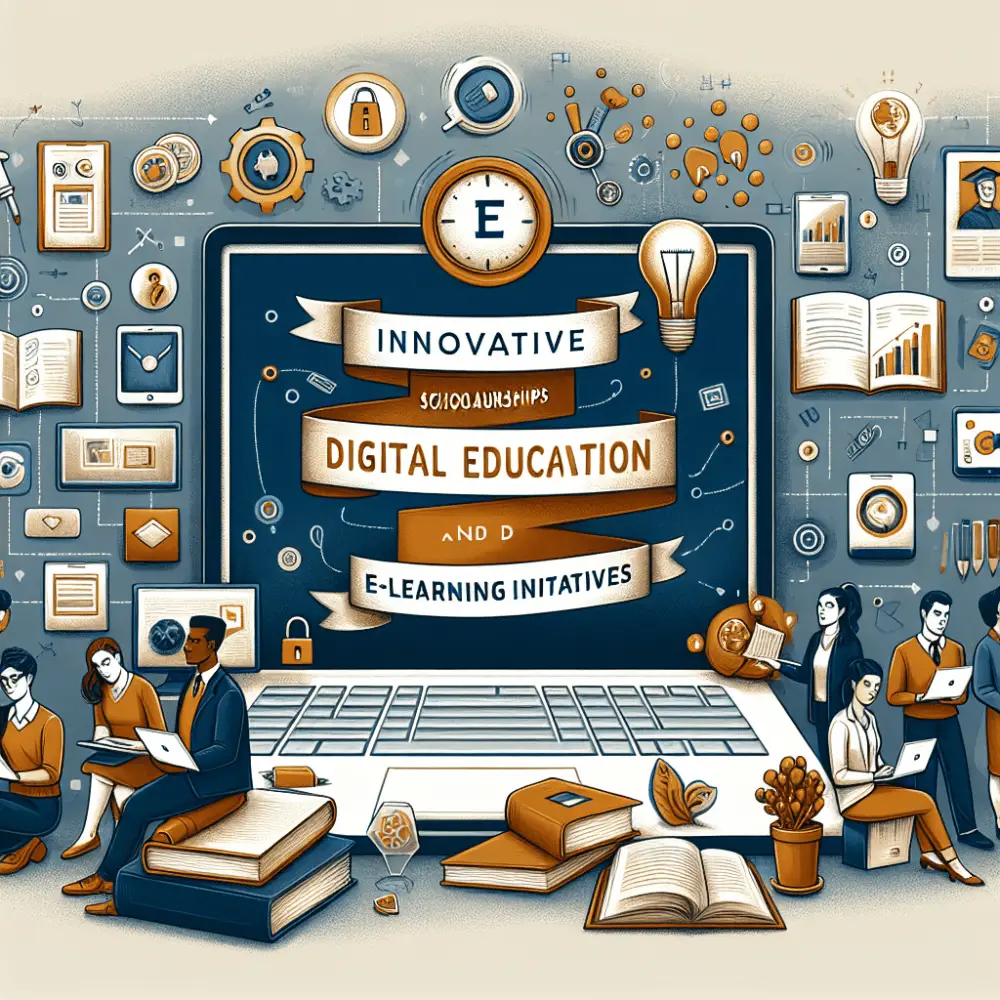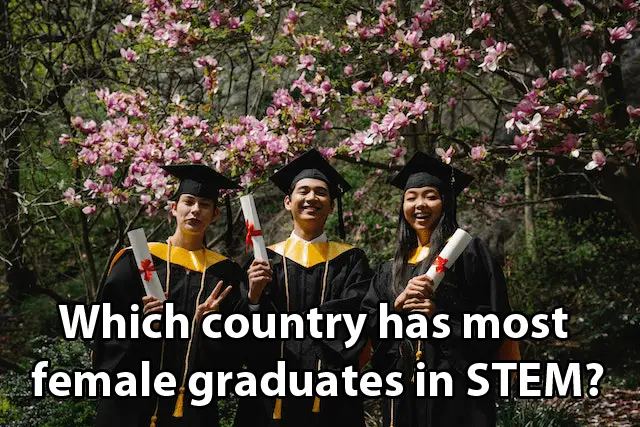
Expanding Access to Education with Scholarships Tailored for Online Learners
In an era defined by rapid technological advancements and a global shift towards digital platforms, access to education has undergone a transformative change. The traditional confines of brick-and-mortar classrooms are giving way to the dynamic landscape of online learning. This shift is facilitated by a proliferation of scholarships aimed at online learners, offering unmatched opportunities to individuals seeking flexible, high-quality education.
Scholarships are playing a pivotal role in expanding access to education for those embracing digital learning. They provide financial assistance to learners who may otherwise find it challenging to afford quality education. This financial support is crucial, given the rising costs of higher education, and the increasing demand for specialized skills in today’s job market.
One such scholarship is the "$3,500 Brazil Agricultural Innovation Fund, 2024", which is designed for students enrolled in agricultural programs online. This scholarship aims to support Brazilian students who wish to contribute to the agricultural sector through innovative approaches. By targeting online learners, the fund makes it possible for students from rural areas, who might face geographical barriers, to gain access to cutting-edge agricultural education and thereby revolutionize their careers.
Similarly, scholarships like the "$6,000 I am a Miner Scholarships – Europe 2023" are tailored to support students pursuing online studies in fields related to mining and geology. This scholarship is particularly aimed at European online learners, acknowledging the pivotal role of these industries in the region’s economy. The financial assistance provided helps students access specialized courses and training programs, which prepares them for the challenges and opportunities within these sectors.
The ability of scholarships to bridge the education gap is significant. They break down financial and geographical barriers, making quality education accessible to a broader audience. This is especially beneficial for individuals who are unable to relocate for educational purposes due to familial obligations or financial constraints. Online learning, coupled with scholarship support, provides the perfect solution for such individuals, enabling them to acquire valuable skills from the comfort of their home.
Moreover, scholarships tailored for online learners encourage lifelong learning. In a world where new knowledge and skills are perpetually demanded, access to educational opportunities that do not interrupt professional or personal responsibilities is invaluable. By supporting online learners through scholarships, educational institutions and organizations empower individuals to continue their education at any stage of their life, thereby fostering an environment of continuous personal and professional development.
The impact of scholarship programs extends to the societal level. By widening the access to education through financial support, scholarships contribute to closing the educational gap between different socio-economic groups. They provide underprivileged students with equal opportunities to pursue advanced education, enabling them to enhance their living standards and contribute positively to society.
Moreover, these scholarships specifically for online learners are fostering innovation and creativity. Online platforms offer diverse programs that encourage interdisciplinary approaches and innovative thinking. Students are exposed to cutting-edge technologies and concepts, which can be utilized to develop creative solutions for real-world problems. Scholarships targeting online learners thus fuel a generation of thinkers who are ready to tackle global challenges.
Educational institutions and governments recognize the potential of online learning and are eager to support it. They understand that scholarships for online learners encourage diversity and inclusivity in education. By supporting learners from various demographics, regions, and socio-economic backgrounds, they ensure a rich mix of ideas and perspectives within the educational discourse, which is crucial for holistic learning experiences.
To cumulatively enhance these efforts, there is a growing need for collaboration between educational institutions, governments, and the private sector. Together, they can create more scholarships specifically for online learners, addressing the precise needs of varying industries. Such partnerships can lead to a well-rounded support system for learners, promoting a robust education network that values and nurtures talent irrespective of geographical or financial barriers.
In conclusion, scholarships tailored for online learners are a vital tool in the modern educational landscape. They offer a gateway to quality education for individuals who might otherwise face insurmountable obstacles. Initiatives like the "$3,500 Brazil Agricultural Innovation Fund, 2024" and the "$6,000 I am a Miner Scholarships – Europe 2023" showcase the potential of these opportunities to transform lives and foster inclusive growth.
Online learning combined with targeted scholarships not only democratizes access to education but also prepares a skilled and innovative workforce ready to meet the challenges of a rapidly changing world. By globally championing these efforts, society moves one step closer to realizing the ideal of accessible, quality education for all, paving the way for a brighter, more equitable future.


















I need a masters in education online
If you’re looking for an online Master’s in Education program, there are several accredited universities known for their strong education programs. While I can’t guide you to specific websites, I can suggest some aspects to consider when choosing a program:
Accreditation: Ensure the university is accredited by a recognized regional or national accrediting body to ensure the quality of education and the value of your degree.
Specializations: Identify if you want to specialize in areas such as curriculum and instruction, educational leadership, special education, or educational technology. Programs often offer various concentrations.
Flexibility and Format: Look for programs that offer flexibility if you need to balance work, family, or other commitments. Many programs offer asynchronous classes, allowing you to complete coursework at your own pace.
Cost and Financial Aid: Consider the tuition and fees of the program and explore if the university offers financial aid, scholarships, or payment plans.
Faculty and Resources: Research the faculty’s qualifications and see if the program provides resources like career services, library access, and student support.
Program Length and Requirements: Check the total credit hours required and how long it typically takes to complete the program. Some programs offer accelerated tracks.
By considering these factors, you can find a program that fits your needs and goals. Once you have a list of potential programs, you can use resources like university rankings and student reviews to make a more informed decision.
Just help me acquire a masters degree in education majoring in young children.
To acquire a master’s degree in education with a focus on young children, you would need to undertake a series of steps. Here’s a guide to help you navigate the process:
Research Programs: Look for universities that offer a Master’s in Education with a specialization in Early Childhood Education or a similar focus. You’ll want to consider factors such as the program curriculum, faculty expertise, the balance between theory and practical experience, and any unique features of the program.
Prerequisites and Requirements: Ensure that you meet the prerequisites for the program. Most programs require a bachelor’s degree, preferably in education or a related field. Some may also require relevant work experience or specific coursework.
Application Process: Prepare your application, which typically includes academic transcripts, letters of recommendation, a statement of purpose, and possibly a resume or CV highlighting relevant experience.
Standardized Tests: Check if the programs you’re interested in require standardized test scores, such as the GRE or the MAT. Prepare and take these tests if necessary.
Financial Planning: Explore scholarship opportunities, grants, and financial aid to help fund your studies. Look into institution-specific scholarships, government assistance, or private scholarships dedicated to education majors.
Program Enrollment: Once accepted, plan your course schedule. Most Master’s programs include core courses in child development, curriculum design, assessment, and education theory, alongside electives in areas of specific interest.
Field Experience: Many programs emphasize practical experience. Engage in internships or practicum placements to gain hands-on experience in early childhood educational settings.
Capstone or Thesis: Some programs require a final project, capstone, or thesis that demonstrates your understanding of program material and your ability to apply it in a professional context.
Networking and Professional Development: Join relevant educational organizations, attend workshops, and connect with professionals in the field to build a network and stay informed about current trends and research in early childhood education.
Graduation and Certification: After completing your program, ensure you meet any additional certification requirements for teaching young children, depending on your region or state, to enhance your qualifications and employment prospects.
By following these steps, you will be well on your way to earning a master’s degree in education with a specialization in young children. Good luck!